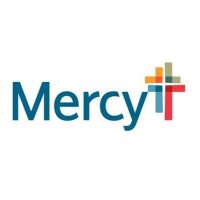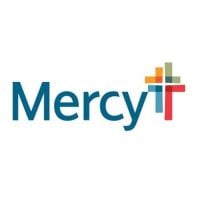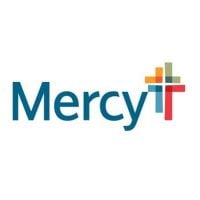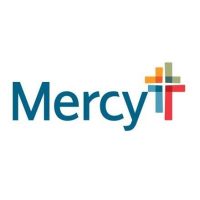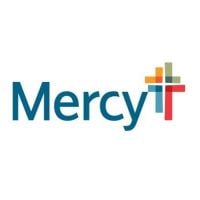Recovery Chapel
Drug Rehab Center in Springfield, Missouri
Recovery Chapel is an accredited Addiction Treatment Facility in Springfield, MO that offers comprehensive levels of care for drug rehab including 40 beds for inpatient treatments with individualized and group therapy, 24/7 medical assistance, and compassionate counselors who are experienced in helping individuals with Alcoholism, Opioid Addiction, Dual Diagnosis, Drug Addiction, Substance Abuse and Mental Health.
About
Recovery Chapel in Springfield, MO, is a beacon of hope for men seeking long-term sobriety from alcohol and drug addiction. With a unique approach that blends 12-step and Christian recovery principles, Recovery Chapel operates six residential properties fostering a family-like environment. Founded by Chaplain Farris Robertson, a guiding light with a sobriety date of May 21, 1985, the facility stands out for requiring a minimum six-month commitment and for its financial independence, empowering residents to contribute to their recovery journey.
State-licensed and boasting 40 beds, Recovery Chapel prioritizes a comprehensive care model. Beyond its spiritual foundation, the center insists on regular therapeutic meetings tailored to each client's work schedule, emphasizing the absence of a "quick fix" for entrenched addiction. This commitment to long-term change underscores the program's dedication to healing not just the individual but supporting the family unit's understanding and growth through available resources such as the book "Recovery for the Christian Family: Surviving Alcoholism."
- Long-term Sober Living Environment: Recovery Chapel provides a family-like atmosphere where men commit to at least six months of sobriety training, emphasizing the journey's long-haul nature.
- Spiritually Inclusive Recovery: While grounded in Christian principles, Recovery Chapel accommodates diverse spiritual beliefs, making it a unique sanctuary for spiritual and emotional healing.
- Independent Financial Model: Each resident contributes to their stay, ensuring the facility remains autonomous from state mandates, fostering a sense of responsibility and ownership over one's recovery journey.
Focusing on alcoholism and drug addiction, Recovery Chapel offers an array of treatment methods, including 12-step programs and therapeutic meetings. The levels of care cater to the needs of those grappling with the complex challenges of addiction, providing a holistic treatment approach that balances physical sobriety with spiritual and emotional recovery.
Genders
Ages
Modality
Additional
Accreditations
State License
Conditions and Issues Treated
Recovering from substance abuse is an essential part of a healthy life for many people. It’s a long and challenging process, but it can be worth it in the end if you manage to get through all parts. Detoxifying your body, rehabilitation after that time passes or when needed (depending on what type), and then recovery while also receiving therapy support throughout this entire process.
A standard route to starting recovering from substance abuse and addiction is through a detoxification center. There you can completely heal your body and mind and continue on the path of recovery without feeling any of the lingering effects of substances.
Within the past decade, opioid addiction has become a nationwide epidemic. The United States hosts one of the world’s highest rates of opioid use or abuse and has one of the highest rates of opioid-related deaths. In the United States, opioid drugs are classified as Schedule II-IV controlled substances due to their highly addictive properties and potential for abuse. These include morphine, opium, heroin, oxycodone, hydrocodone, methadone, and fentanyl. Physicians usually prescribe opioids to help control pain.
Over time, opioid users develop a tolerance for the drugs, which makes it difficult, if not impossible, to function without them. In turn, opioid users often resort to illicit means of obtaining the drugs. These means can include drug dealers, friends, and family members who do not have legitimate prescriptions for the drugs. Opioid addiction can quickly lead to heroin use, especially those seeking more intense highs than prescription opioids offer. Due to the high risk of overdose, heroin users are at a much higher risk for illness and death.
Levels of Care Offered
This center offers a variety of custom treatment tailored to individual recovery. Currently available are Drug Rehab, Inpatient, with additional therapies available as listed below.
Inpatient treatment centers offer a safe, secure, and often medically supervised environment for drug or alcohol-addicted individuals. Many of these facilities are equipped to provide detoxification, treatment for co-occurring mental health disorders, and aftercare programs.
The patient typically spends 28 to 30 days at the facility and will receive extensive drug counseling. They will also learn how to live without drugs and how to make the right decisions in life.
Therapies & Programs
Individualized Treatment is essential because it gives addicts the ability to participate in a program that meets their unique needs. An addict should work with professionals who understand what they’re going through, especially if the addict is actively using. Finding the right treatment program for an addict is difficult, but it’s even harder without communicating with those who have experience treating your specific situation.
Couples therapy is a treatment approach where the patients and their partners are engaged together. When a person becomes a victim of substance abuse, it affects the patient and his people, particularly his partner. Their relationship can become strained due to lack of communication, financial issues, loss of trust, lack of intimacy, and physical abuse in more severe cases. Couples therapy addresses these issues and tries to rebuild the trust between the partners. The partner’s involvement in the process will result in greater chances of treatment success and sustained recovery.
The therapies typically involve all family members, potentially including siblings, children, and parents who play a role in their daily lives. These sessions can be essential because they address past issues that may have affected an addict or alcoholic’s recovery process. They provide support during this time when it is needed most!
A family therapy session, often called a family meeting or intervention, is a necessary process that helps loved ones of addicts see their situation in a new light. It’s also one of the most challenging things families will ever have to do when they’re facing a loved one battling addiction or alcoholism.
Group therapy sessions provide recovering addicts with a chance to cope with everyday situations that many face. Group therapy sessions are held in rehab facilities, clinics, churches or community centers that offer drug addiction treatment.
People who attend these groups are encouraged to voice their feelings and support other addicts in recovery. This helps group members strengthen their own recovery program while cheering on others who are struggling with sobriety.
Payment Options Accepted
For specific insurance or payment methods please contact us.
Additional Details
Specifics, location, and helpful extra information.
Springfield, Missouri 65807 Phone Number(417) 887-7228 Meta DetailsUpdated April 15, 2024
Staff Verified
Patient Reviews
There are no reviews yet. Be the first one to write one.
Springfield, Missouri Addiction Information
Opioid-related overdoses in Missouri have been increasing steadily for the past three decades. In 2018, more than 1,130 people in Missouri died from opioid abuse. Methamphetamines and marijuana abuse have surpassed opioid abuse in Missouri. Missouri is the number 1 methamphetamine manufacturer in the country with more than 27 meth labs per 100,000 people.
There are around 9,000 people who are addicted to drugs in Springfield, MO. This accounts for around 7% of the population. Around 2,000 people have an addiction to this cocaine. Other types of drugs abused in Springfield include heroin, methamphetamine, painkillers, and marijuana. 17.8% of high school students are reported using an illicit drug. Drug treatment in Springfield, MO, typically involves detoxification, therapy, and aftercare.
Treatment in Nearby Cities
- Reeds Spring, MO (30.8 mi.)
- Rogersville, MO (14.0 mi.)
- Bloomfield, MO (186.9 mi.)
- La Belle, MO (215.8 mi.)
- Kennett, MO (191.2 mi.)
Centers near Recovery Chapel
The facility name, logo and brand are the property and registered trademarks of Recovery Chapel, and are being used for identification and informational purposes only. Use of these names, logos and brands shall not imply endorsement. RehabNow.org is not affiliated with or sponsored by Recovery Chapel.




